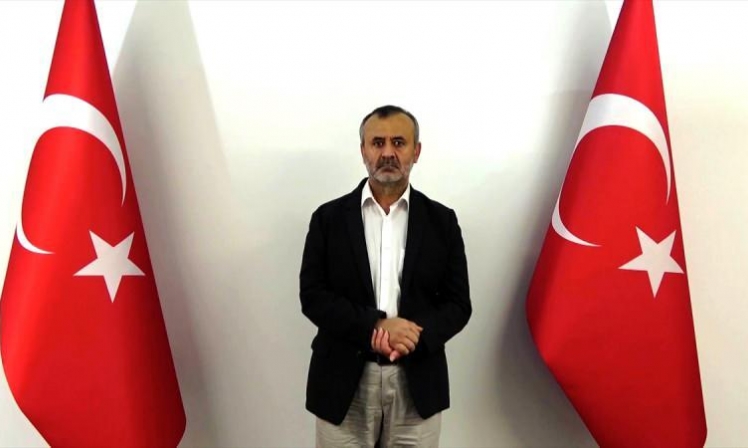A Turkish court on Monday ruled to arrest Orhan İnandı, an educator who was abducted from Kyrgyzstan by Turkey’s National Intelligence Organization (MİT) due to his alleged links to the Gülen movement, on terrorism charges, the state-run Anadolu news agency reported.
İnandı, the founder and president of the Turkish-Kyrgyz Sapat school network operating in Kyrgyzstan, went missing in Bishkek on the evening of May 31. He was feared to have been abducted by MİT due to his alleged links to the Gülen movement, a faith-based group inspired by Muslim cleric Fethullah Gülen. The movement is labeled as a terrorist organization by the Turkish government and accused of masterminding a failed coup in Turkey in July 2016. Both Gülen and his followers strongly deny any involvement in the abortive putsch or any terrorist activity.
According to Anadolu, İnandı was arrested by an Ankara court on charges of being the leader of a terrorist organization.
Turkish President Recep Tayyip Erdoğan had acknowledged in a statement following a Cabinet meeting on July 5 that İnandı was actually abducted by MİT, lauding the Turkish spies’ efforts in the rendition.
Erdoğan said, “MİT, through genuine and patient work, brought the FETÖ [a derogatory acronym used by Ankara to describe the Gülen movement] member in charge of Central Asia, Orhan İnandı, back to Turkey.”
On June 9 Erdoğan told Kyrgyz President Sadyr Japarov during an official visit to Ankara that he had no idea of the whereabouts of İnandı, according to an aide to the Kyrgyz president.
Kyrgyz lawmakers, citizens, prominent rights groups and activists around the globe urged the Kyrgyz government to locate İnandı.
Human Rights Watch released a statement on July 7 following Erdoğan’s announcement about İnandı, saying that the abduction, forcible disappearance and extrajudicial transfer of educator İnandı to Turkey by Turkish and Kyrgyz authorities amount to egregious violations of international and domestic law.
Civil society groups and others have also expressed shock at İnandı’s forcible transfer to Turkey amid concerns that the Kyrgyz government failed to thoroughly investigate his disappearance.
Erdoğan has been targeting followers of the Gülen movement since the corruption investigations of December 17-25, 2013, which implicated then-Prime Minister Erdoğan, his family members and his inner circle.
Dismissing the investigations as a Gülenist coup and conspiracy against his government, Erdoğan designated the movement as a terrorist organization and began to target its members. He intensified the crackdown on the movement following the abortive putsch on July 15, 2016 that he accused Gülen of masterminding.
According to the latest information provided by Turkish officials, 622,646 people have been the subject of investigation and 301,932 have been detained, while 96,000 others have been jailed due to alleged links to the Gülen movement since the failed coup.
There are currently 25,467 people in Turkey’s prisons who were jailed on alleged links to the Gülen movement, the official data indicate.
The government also removed more than 130,000 civil servants from their jobs on alleged Gülen links following the coup attempt.
In addition to the thousands who were jailed, scores of other Gülen movement followers had to flee Turkey to avoid the government crackdown.



